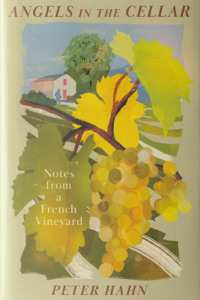Vines have been grown here for hundreds of years and we wanted to reflect this deep-rooted foundation and history in the new wine, while at the same time signaling that the wine we produce here would be like nothing ever produced here before; a new, natural, elegant and refined wine. The belief underlying this approach is: simple and natural is better.
Winemaking, like most things, has become industrialized to such an extent that the art of making a natural wine is disappearing. Not only do I have a bee in my bonnet about the use of chemicals and other additives in the vines and in the wine, but I also can’t stand the fact that so much wine from so many different places tastes so alike (and non-descript).
Wine is a product of place, time, and people. The natural conditions during each growing season are different; the amount of sun, rain, wind, the insect and other biological activity in the vineyard vary… but the place remains the same; the soil, the topography, the vines… it is the magic of this combination that gives a “natural” wine its uniqueness; there is always an underlying “footprint” of the wine from a certain place, but each year the wine is different. If one is looking for the same wine each time one buys a wine then they need to look to “industrial” wines, not here.
Along with these beliefs I also hold to the idea that the “essence” of a wine, of its place and time, can be captured by growing and picking only the best grapes and pressing only the finest juice. By limiting the productivity of the vines and getting them to produce fewer but higher quality bunches, by selecting only the best juice from the best grapes….. all this can only be done by hand, not with machines.
Which brings me finally to what, for me, winemaking is ultimately about: people. The people who come and work with us, pruning, harvesting, pressing and helping in the myriad of tasks that go into making the wine all put some of themselves into the wine. But wine is made for drinking, with friends, family and our “clients” who believe in what we are doing and participate in their own way, by sharing the wine even further a field, across countries and cultures. I can’t think of anything that gives me more pleasure than imagining a bottle of le Clos de la Meslerie being opened in a restaurant or home a thousand miles from this little French valley and contributing to the conviviality and pleasure of an evening amongst people I may never have met.

